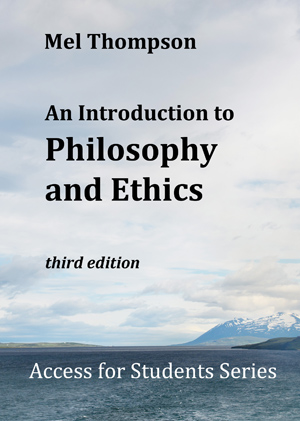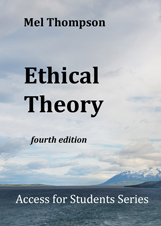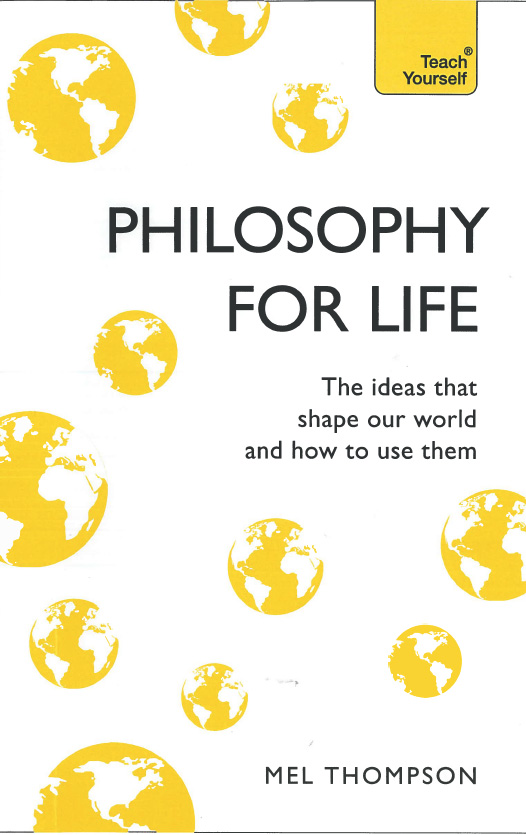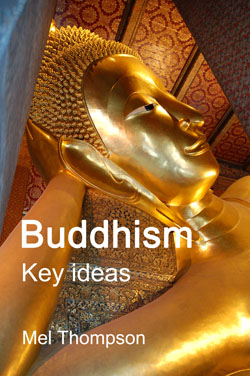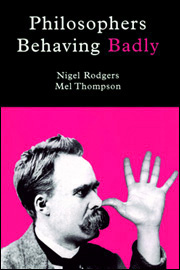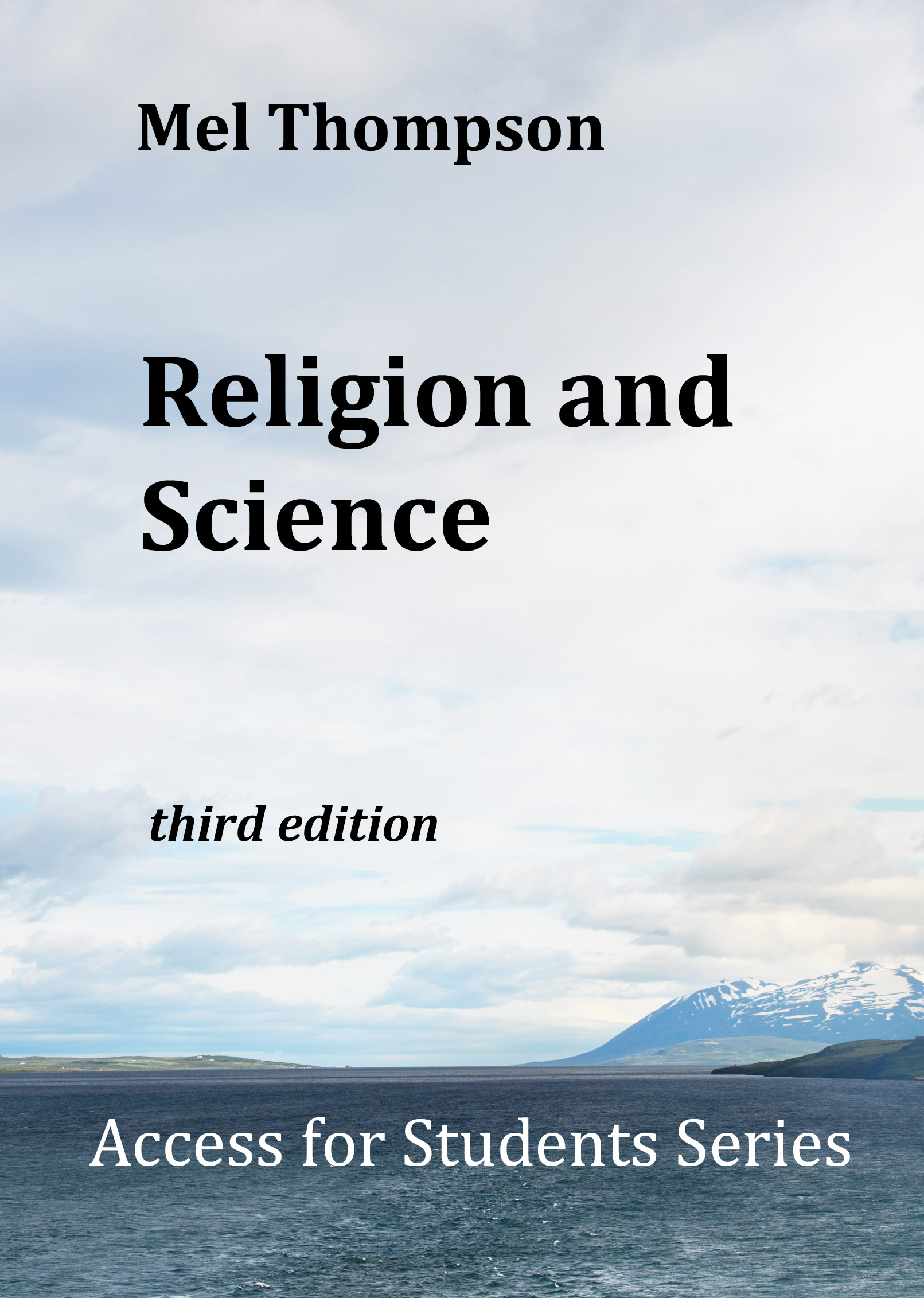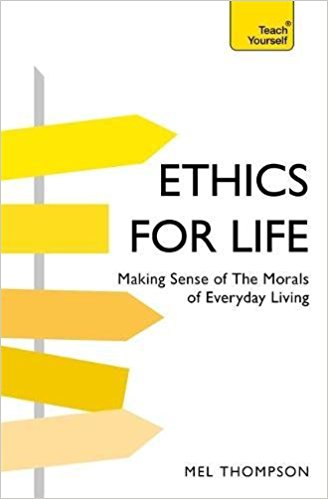UTILITARIANISM
Is it democratic and obvious or superficial and limited?
Contents
Introduction
Origins
Note: democracy, risk and values
Jeremy Bentham
Note: Spectre and the Panopticon
John Stuart Mill
Rules…
Preference utilitarianism
Practical applications
Problems…
Advantages...
Introduction
Utilitarianism is probably the most widely used ethical theory today. Seeking to achieve ‘the greatest good for the greatest number’, and thereby evaluating actions as right or wrong by their intended results, is seen as a commonsense principle, both obvious and fair, by a majority of people. But does it do justice to the conviction that some actions are right or wrong whatever their consequences? And who is to decide what is ‘the greatest good’ or benefit for that majority of people? Might someone’s long-term benefit be exactly the opposite of their present preference?
We do something – of refrain from doing something – because we want to achieve or avoid the expected result of that action. That much is clear, and the alternative would be to consider morality simply as an expression of a person’a personal wishes – but that would make little sense because, if everyone simply did what they chose, how could we say that something is good or bad in any objective sense? So the intentional consequences of an action (unintended consequences that could not be forseen are another matter) need to be taken into account. But are they enough to establish right and wrong?
These are just some of the questions raised by looking at ‘utilitarianism’ the name given to the most common form of ‘consequentialist’ ethics. In examining it we shall be looking at:
- The origins of Utilitarianism
- The argument put forward by Bentham
- Mill’s development of that argument
- The difference between ‘act’, ‘rule’ and ‘preference’ utilitarianism.
- The limitations of utilitarian moral judgements
- How utilitarianism compares with other ethical theories
The origins of Utilitarianism
Both the function and the limitations of Utilitarianism are illustrated by its origins. We first encounter it in the 17th and 18th century political debates about the nature of society and the principles by which it should be governed.
Francis Hutcheson (1694-1746) took as his basic principle the idea that, in assessing political regimes, one should always favour that which offered ‘the greatest good for the greatest number’ – a phrase which has come to encapsulate the utilitarian approach. He took the ‘moral sense’ approach to ethics, namely that everyone has a natural intuition about what is ‘good’ expressed, for example, in a feeling of compassion towards those who are suffering. Everyone fundamentally wishes the welfare of everyone else, the question is how you can achieve it.
This, of course, was the fundamental tenet of the then newly fashionable political system - democracy. All should contribute to society, all have a voice to be heard, all have a right to the benefits that society can offer and a share in saying how it should be run. And the negative aspect of this: the nobody has the right ot appropriate goods or benefits at the expense of others, or against the will of the majority.
Of course, then as now, there was inequality in society – so the benefits were never shared exactly equally, but such inequality was only accepted on the basis that the loss of freedom entailed in forced equality would harm individuals more than living in an unequal society. Everyone is given the same chance of success, even if not all can be equally sussessful – and if you take the possibility of success away, everyone suffers and there is no incentive to grow and develop. Of course, one might challenge the idea that, in any actual society – as opposed to a theoretical one – people can have equal chances; where and to whom you are born are strong indicators of how you are likely to flourish. Equally, one could start to question whether the incentive to grow is inevitably at the expense of the growth available to others – a general question to be asked of any capitalist system. But we need to be aware that, in the 18th century, the idea of democratic equality was becoming influential, as is reflected in the American Constitution – everyone has the right to life, liberty and the pursuit of happiness.
Ultiltarianism developed as the ethical equivalent of democracy – everyone should have a say, and everyone's interests should be taken into account, in determining what is right or wrong, both in social and individual morality, and to do that equitably sugest that one should always seek ‘the greatest good for the greatest number.’
Taking the happiness or benefit of others as the basis of morality certainly did not originate in debates of the 17th and 18th centuries. Both in Hebrew scriptures of the Old Testament and in the teachings of the Buddha you have the moral principle known as the golden rule ‘what you find hateful to yourself, do not do to another’ and the positive equivalent of it ‘do unto others as you would wish them to do unto you’, a principle summed up by Jesus of Nazareth as ‘love your neighbour as yourself.’
Also, from Aristotle, we have the aim of the moral life as ‘eudaimonia’ – meaning something more than happiness, a sense of living well and doing well, fulfilling one’s potential as a human being.
Note: democracy, risk and values
The democratic and intuitive elements that underpin utilitarianism are fundamental to many ethical arguments. For example, John Rawls, a key 20th century political thinker, argued that justice could only be established if people got together and decide what was in their best interests. But they could do that equitable only if they have no idea what their particular status in life was – in other words, if they did not know whether they were rich or poor, and therefore whether they might gain or lose by an equitable sharing of goods. He suggested that, in such a situation, everyone would play safe and seek to take care of the weakest in society, because they would never be sure that they were not be in that position. Not everyone, of course, agrees with this idea.
His book A Theory of Justice (1972), and the arguments that have developed from it, are of great interest to political and well as moral thinkers. There are many problems with the argument and the way Rawls uses it, but for our purpose here, notice just two things:
- that you need an intuition of what is in people’s best interest if you are to act equitably towards them
- that you need to start from a position of good will. Otherwise, one might be willing to risk everything in order to gain at the expense of everyone else.
Neither of these is limited to Rawls, of course; they could equally be applied to the ‘moral sense’ arguments of the 18th century philosopher David Hume.
So any argument based on a democracy of goods, or on an acceptance that everyone has a right to express their own preference and have it satisfied is going to assume both the values that are judged to benefit people, and a willingness to do what is in the interests of all.
If you have no values, and you don’t care what happens to other people, all utilitarian and other arguments fail – for you have no reason to want that which offers ‘the greatest happiness to the greatest number.’
So shared values are essential in order to give specific content to moral ideas. But what about risk? You might choose to risk failure in order to aim to be successful. Would you always opt to play safe and avoid loss? The acceptance of risk is fundamental to capitalism; without risk, there is no reward – and the greater the risk of losing everything, the greater the reward that needs to be offered to get one to participate. So we have an additional question here: Does utilitarianism – by aiming to achieve a benefit for all concerned – go against a natural drive to succeed at the expense of others?
Warning: Please don’t assume, simply because I have used him as an example here, that Rawls is a utilitarian. His political and moral thought may also be seen as part of the legacy of Kant’s moral thinking, since he wants to establish universally applicable principles of justice.
Jeremy Bentham (1748-1832)
When it comes to philosophy, ethics, politics, or personal relationships, the world is divided into two very different camps. There are those who start with the practical, down-to-earth situations in which people find themselves, and try to see what can best be done in them, and those who start with universal ideals, and pontificate about what we should all be doing in an ideal world.
Many doctors, lawyers, psychologists, therapists, (some) politicians, town planners and aid workers come into that first category, examining what life is really like and then judging how best to respond to it. Other thinkers – including some philosophers, politicians and economists, may be caricatured as living in an ivory tower, having little contact with the real world, and whose view of what we should be done comes from an idealised view of things, unsullied by real life. Bentham definitely came into the first category.
Jeremy Bentham (1748-1832) came from a family of lawyers working in the City of London, but became disgusted with the law, as then practised, since he felt that it was more about making money for the lawyers than actually helping those in need. There were many established practices by which lawyers lined their own pockets, but which did not good at all to those they were meant to represent.
Bentham was what we would today call a ‘social scientist’. He sought to look at how people behaved and what motivated them to make the choices they did. He recognised that people do actually seek happiness, and try to avoid pain – both for themselves and those they are concerned about. That is reality. Whatever universal ideals you may propound, people are still going to seek happiness in the end.
‘Nature has placed mankind under to governance of two sovereign masters, pain and pleasure.’
(From the opening of An Introduction to the Principles of Morals and Legislation 1759)
Happiness is actually the great motivator. You do what you do because you seek happiness, either for yourself or for others. Even if you’re a masochist – getting hurt gives you pleasure, and you are therefore happy to suffer. Even if you give your life in a great cause, it is because you think that, in the end, there will be greater happiness as a result.
Notice that Bentham is not starting by saying that people ought to seek happiness; he says that, in actual fact, the do seek happiness. You can argue moral theories as much as you like, but that will not change the way people actually behave. They are motivated by happiness and the avoidance of pain and suffering. But if that is the basic fact of life, what should follow? His answer is to examine the meaning of right and wrong in terms of promoting those actions that allow people to experience happiness and avoid unhappiness.
He therefore argued for the ‘Principle of Utility’:
‘By utility is meant that property of any object, whereby it tends to produce benefit, advantage, pleasure, good, or happiness, (all this in the present case comes to the same thing) or (what comes again to the same thing) to prevent the happening of mischief, pain, evil, or unhappiness to the party whose interest is considered: if that party be the community in general, the happiness of the community: if a particular individual, then the happiness of that individual.
(An Introduction… Chapter 1 section 3)
Therefore, as a practical man, Bentham was concerned with the social conditions of his day, and particularly with the conditions in prisons and hospitals. He wanted to find a moral basis for law that could serve to benefit the whole of society. Laws, he believed, should be framed according to reason, and in order to bring about happiness. Only by basing law on this could it conform to what people actually seek, and therefore stand a chance of being workable.
Bentham wanted to secure the happiness of individuals, and he wanted everyone to count equally, since he believed that everyone had an equal right to happiness, irrespective of their situation. He wanted morality to be fair and democratic.
In what is generally described as his ‘hedonic calculus’, he suggested that benefits should be measured in terms of:
- their duration
- their intensity
- how near, immediate and certain they are
- whether or not they are likely to lead to further benefits in the future
Don’t be put off by the term ‘hedonic.’ ‘Hedonism’ gets a bad press, because it is associated with the view that everyone is just out to maximise his or her pleasure, but it need not mean that. Aristotle claimed that everyone rightfully sought their own happiness or well-being. The term he used for that was eudaimonia, which had a broad meaning in terms of living well and doing the right thing. So think of the goal of ethics here more as ‘living well’ rather than simply ‘pleasure’, which can suggest a crude quest for physical pleasure.
As far as possible, Bentham thought that we should quantify benefits, and act accordingly. Conforming to a rule or law was a matter of secondary consideration. In effect, he would argue that you cannot always tell what the result of your actions will be, but you are right if you act in accordance with the intention of sharing happiness and benefit in this way.
So, for example, the punishment of a criminal should be considered in terms of the overall well-being of society – the criminal’s suffering should be balanced by the overall advantage to society, so his or her punishment can be justified if it deters others from committing crime or promotes respect for the law, but at the same time it may also help to reform the criminal.
Remember that Bentham worked on the basis of the psychological observation that people actually choose to do what is in their own best interest. A wise legislator therefore organises the laws and moral principles in such a way that those who seek their own interest will, at the same time, find that they are promoting the interest of the rest of society as well.
If government will not change the law to benefit people in this way, then the government needs to be changed. Bentham became a democrat, and had a radical proposal – he wanted there to be a system of one man, one vote, and a secret ballot! The government of a country will only benefit the majority, when the power to set up and dispose of that government is in the hands of the majority.
Nor, for Bentham, is there any conflict between ‘happiness’ principle and reason. He argued that the right laws would increase the happiness of people, but also that the right laws would only be framed on the basis of reason. But reason has to take human nature into account – hence his need for the pain/pleasure principle to be taken into account.
There is a choice when it comes to moral theories – between those that are based on theories about what life should be like, and those based on what life is actually like. Bentham would argue in favour of the latter – because they are both realistic and workable.
Note: Is ‘Spectre’ watching you?
Bentham wanted to build a ‘Panopticon’ – this was a prison built around a central courtyard, in such a way that a single observer, placed in the middle, would be able to see each of the cells around the circumference. Bentham wanted these cells built so that inmates would always be aware that they were being observed.
His reasoning was that, if you were aware of the public scrutiny of your actions, you would moderate your behaviour, and would eventually see that you should do what is of benefit to society. In other words, it was seeing prison as a means to reform the criminal.
It never got built, because the government did not provide the funds. But the idea was important. It assumes that we only behave badly because we think we are not going to be observed – and we do things in our own interest, because we are not observed by everyone else, whose interests we might take into account if we were aware of their observation of us.
The problem – as anyone who has watch the 2015 Bond film ‘Spectre’ will know – is that surveillance, even if presented in the guise of protecting the public, can be used for malevolent purposes. In a society where our every moment is observed, the observers have power over us. And our data – as we know when the computers of banks and other large organisations are hacked – is a precious commodity; we share it at our risk. Not everyong will use it in order to promote our well-being.
John Stuart Mill (1806-1873)
Mill’s version of Utilitarianism is generally termed ‘Rule Utilitarianism’ which gives a clue to his main criticism and development of Bentham’s approach. Mill argued that not all forms of happiness or pleasure were of equal value – which is what Bentham had seemed to imply. He also recognised that, in life, there is a temptation to settle for the more immediate and sensual pleasures, rather than the nobler and more refined ones.
‘Capacity for the nobler feelings is in most natures a very tender plant, easily killed, not only by hostile influences, but by mere want of sustenance; and in the majority of young persons it speedily dies away in the occupations to which their position in life has devoted them, and the society into which it has thrown them, are not favourable to keeping that higher capacity in exercise. Men lose their high aspirations as they lose their intellectual tastes, because they have not time or opportunity for indulging them; and they addict themselves to inferior pleasures, not because they deliberately prefer them, but because they are either the only ones to which they have access or the only ones which they are any longer capable of enjoying. It may be questioned whether anyone who has remained equally susceptible to both classes of pleasures every knowingly and calmly preferred the lower, though many, in all ages, have broken down in an ineffectual attempt to combine both.’
(Utilitarianism, chapter 2)
Not only should we therefore consider the quality of the benefits on offer, we should also recognise that some people will be prepared to sacrifice their own benefit for the sake of others:
‘The utilitarian morality does recognise in human beings the power of sacrificing their own greatest good for the good of others. It only refuses to admit that the sacrifice is itself a good. A sacrifice which does not increase or tend to increase the sum total of happiness, it considers as wasted.’
(Utilitarianism, ch 2)
In other words, if you choose to give your life to save someone else, that may be a good and right thing to do, but whether the sacrifice itself was good will depend on whether or not it served the purpose intended. In other words, if you die in the attempt to save someone who appears to be drowning, the value of that action – in strictly utilitarian terms – is not the motive that lead you to sacrifice your life, but the actual result achieved. In this case, if the person you were attempting to save drowns, your sacrifice may have been wasted – even if your intention in sacrificing yourself was good.
Mill links his approach to utilitarianism with Christianity:
‘In the golden rule of Jesus of Nazareth, we read the complete spirit of the ethics of utility. “To do as you would be done by,” and “To love your neighbour as yourself,” constitute the ideal perfection of utilitarian morality. As the means of making the nearest approach to this ideal, utility would enjoin, first, that laws and social arrangement should place the happiness or (as, speaking practically, it may be called) the interest of every individual as nearly as possible in harmony with the interest of the whole; and, secondly, that education and opinion, which have so vast a power over human character, should so use that power as to establish in the mind of every individual an indissoluble association between his own happiness and the good of the whole ...’
(J S Mill Utilitarianism, chapter II)
Rules…
Mill suggested a positive place for rules within an overall utilitarian approach. To use his own example, he argues that society needs the principle of truthfulness, without which nobody would ever be able to trust anybody to be telling the truth. Therefore, the rule that one should tell the truth is a means of securing the greatest happiness for the greatest number within society as a whole. He cites the situation of someone who is tempted to lie in order to get some immediate benefit. He argues that the principle of telling the truth is of such great benefit to humankind as a whole, that it should not be set aside for some immediate advantage. Thus Mill promotes rule utilitarianism; general rules should be obeyed, since they give overall benefit to society, but they may be broken in exceptional circumstances. Mill’s examples of this are that one should generally tell the truth, but not if that involved giving information to someone who is like to use it to further an evil purpose, or giving bad news to someone who is dangerously ill, and who might be harmed by hearing the truth.
In general we distinguish between:
Strong rule utilitarianism, which holds that one should never break a rule that is established on utilitarian principles. In other words, if I may see a gain for all concerned in a situation by breaking the rule, that does not make it right to do so – simply because, if the principle which lead to the promotion of that rule were to be generally abandoned, the overall effect would be worse than if the rule were kept in this particular situation.
Weak rule utilitarianism, which holds that there may be situations when the assessment of the results of a particular act may take precedence over the general rule, although the general rule still needs to be taken into account in assessing what it right.
However, it is important to recognise that Bentham’s act utilitarianism, and Mill’s rule utilitarianism are actually closer than the simple distinctin between act and rule might suggest. Although Bentham applied a hedonic calculus to each ‘act’, he did so in the context of wanting to establish the moral validity of rules and laws by which society might be governed. While Mill, although taking note of the way in which obeying rules could be for the benefit of society as a whole, he was generally taking a ‘weak rule’ approach.
Preference utilitarianism
One of the dangers of utilitarianism is that it suggests that one can judge right or wrong on the basis of what one assumes to be in the best interests of other people – that you judge what is their ‘greatest good.’ However, if we are to treat everyone as equally entitled to moral consideration, what counts is not what we think is in their interest, but what they would prefer. This is acknowledged by preference utilitarianism. In this form of utilitarianism, you should take into account the preferences of the individuals involved, except where those preferences come into direct conflict with the preferences of others. The right thing to do, therefore, is to maximise the opportunity for everyone’s preferences to be satisfied; everyone should receive an ‘equal consideration of interests’
This form of utilitarianism (promoted particularly by the influential modern ethical thinker, Peter Singer) takes into account two important features of 21st century life, relativism and the quest for personal integrity. Globally, it is seen as important that that no one culture should dictate to another the values by which people should live, so cultural differences should be taken into account. On the other hand, some cultural practices (e.g. forced marriage, female genital mutilation, homophobia) are seen as incompatible with the general view, since the Enlightenment, that all individuals should be treated as free and autonomous human agents, entitled to seek their own happiness and live by their own values.
And this – although beyond a consideration of utilitarianism as an ethical theory – leads to the general question about how a liberal society should cope with those (e.g. fundamentalists) who take a narrow and authoritarian view. Do you extend democratic rights to those who reject democracy? Should you tolerate those who are intolerant? Should you take into account preferences that are utterly at odds with those of a majority?
Practical applications
Utilitarianism, especcially in its 'preference' form, has come to prominence particularly in the areas of medical and nursing ethics. Autonomy of the individual is a key feature. Doctors should not be allowed to follow their own wishes, or research interests, in determining treatment. Patients come first -- that is basic to framing professional ethics of all sorts.
But can 'the wishes of a patient' necessarily always be followed? What is the patient seeks his or her own harm? And are we all detached and objective enough to assess what should be done, without having our judgement clouded by our own history and experiences. Do we have moral feeling that overwhelm rational judgement?
I may know, for example, that it is in the best interests of an old or sick pet that it should be put down. That might also correspond to my own interests at a practical level. But that does not make the decision any easier. This sort of difficult decision is only taken because there is a prior and overwhelming desire to see an end to suffering in some form.
In other words - the utilitarian justification works, because the decision was based on emotions, principles and values that I already held.
A key problem with using a utilitarian basis for any moral discussion is that utilitarianism itself does not define the nature of good. You may want to offer the greatest good to the greatest number, but do you know what that 'good' is? Can you ever really know or define what it 'good' for another person? Do you allow everyone concerned to define their own good? And what do you do if people have differing views of what is good for them?
Problems with utilitarian arguments:
- You cannot derive an ‘ought’ from an ‘is’ - this ‘naturalistic fallacy’ was set out by David Hume and G.E.Moore). But utilitarianism appears to derive an ‘ought’ from the expected results. It therefore begs the question whether you should seek the greatest good for the greatest number.
- Results are never conclusive. You cannot be certain of final overall benefits; so you never know whether or not you have offered a genuine benefit. The corny example of this is whether, with hindsight, it would have been right to save the life of a child who subsequently grew up to be a mass murderer.
- The values upon which utilitarian arguments depend cannot themselves be validated by a utilitarian argument; that would be circular. Values – the desirability of doing good to others; basic equality of persons – have to be assumed for the argument to work. In other words – ‘You should seek the greatest happiness for the greatest number, because that is the way to achieve the greatest happiness for the greatest number’ does not get us anywhere. You can always ask ‘Why?’
One might therefore that utilitarianism is inadequate, taken on its own, as a moral theory. It serves as a way of allocating and applying moral choices once basic moral values are assumed.
The fundamental question ‘What should I do?’ is seldom presented in a utilitarian way. If it were, there would be no problem – one would automatically go for that which obviously brought about the maximum good. Moral dilemmas only come about because either the quality or quantity of that ‘good’ are in doubt. One may genuinely seek to bring about the greatest good, and still feel guilty about the action one has chosen to take.
Consider a difficult medical choice…
Given Siamese Twins, both of whom will die unless the less vaible one is surgically separated from the more viable, a utilitarian argument could conclude that one child is better than none, and therefore that the operation should be performed in spite of the fact that it effectively kills the less viable twin. But what are the longer-term implications of such a decision? We can attempt various calculations, based, on ‘act’, ‘rule’ or ‘preference’ approaches, but that does not take away the moral dilemma of deliberately ending the life of the less viable child. Nor would it be fair to present utilitarian arguments as ‘rational’ and others as either simply emotional or based on religious beliefs – the ending of life, even if the long-term result looks positive, is something that many people would regard as wrong.
Moral dilemmas result from genuine conflicts about alternative courses of action. These alternatives may reflect:
- the social and personal consequences of an action
- the values that are expressed through that action
- the emotions and relationships that are involved.
Quantified results are therefore part, but only part, of that process. Utilitarian arguments therefore depend upon already established values and principles, they cannot adequately generate them.
Advantages of a utilitarian approach
- It is straightforward and based on clear principles.
- Given a common desire to benefit the majority of people, and general agreement on what is to their benefit, it yields commonsense results.
- It is easy to demonstrate that utilitarianism is fair, since its basic principles are widely accepted.
- It does not appear to require the acceptance of any prior beliefs about the nature of the world or of religion, and its moral discussions can therefore be appreciated across different religions and cultures.
- Utilitarianism is the moral equivalent of democracy. If giving everyone an equal say is (in your view) of key importance for determining how we should live, then you will have no problem with accepting the results of utilitarian arguments. If, on the other hand, there are occasions when you might want to claim that something is absolutely right, no matter what the consequences, then you will need to supplement your utilitarianism with values from other sources, such as Natural Law or religious authority.
© Mel Thompson, 2015



